Bangladesh’s secret information in threat
Myanmar use MPT SIMs to collect confidential information
03 July 2021, 02:04 pm
Myanmar have been illegally collecting information from Bangladesh by setting up a mobile network tower of a telecom company named MPT (Myanma Posts and Telecommunications) in 20 kilometers area of the country’s Maungdaw border.
Several criminal groups are using these SIMs to make communicate among themselves. The Bangladesh government is unable to control the MPT network despite having information about it.
Two correspondents of Dhaka Post went to the Huaikeng area of Teknaf upazila, around 10 kilometers away from the Myanmar border, to investigate the matter. Our correspondents found a number of mobile network frequency towers have been set up in the vicinity of the Bangladesh border from the Tersa bridge of Huaikeng.
The network frequency of MPT provides very good service in the Huaikeng area of Teknaf upazila. MPT (Myanma Posts and Telecommunications) is a state-owned company in Myanmar, just like Teletalk in Bangladesh.
As per Dhaka Post’s investigation, everything that is a threat to Bangladesh, including Yaba, have been conducted by using the frequency of MPT. Besides, the country’s intelligence agencies are getting a lot of information about Bangladesh very easily with the help of this mobile frequency.
MPT (Myanma Posts and Telecommunications) is a state-owned company in Myanmar, just like Teletalk in Bangladesh. Everything that is a threat to Bangladesh, including Yaba, have been conducted by using the frequency of MPT.
Locals said that the use of MPT at the border is now an open secret. All departments of law enforcement agencies including the Police are aware of that matter. Many of them stated that the MPT’s towers were not so close to the border earlier.
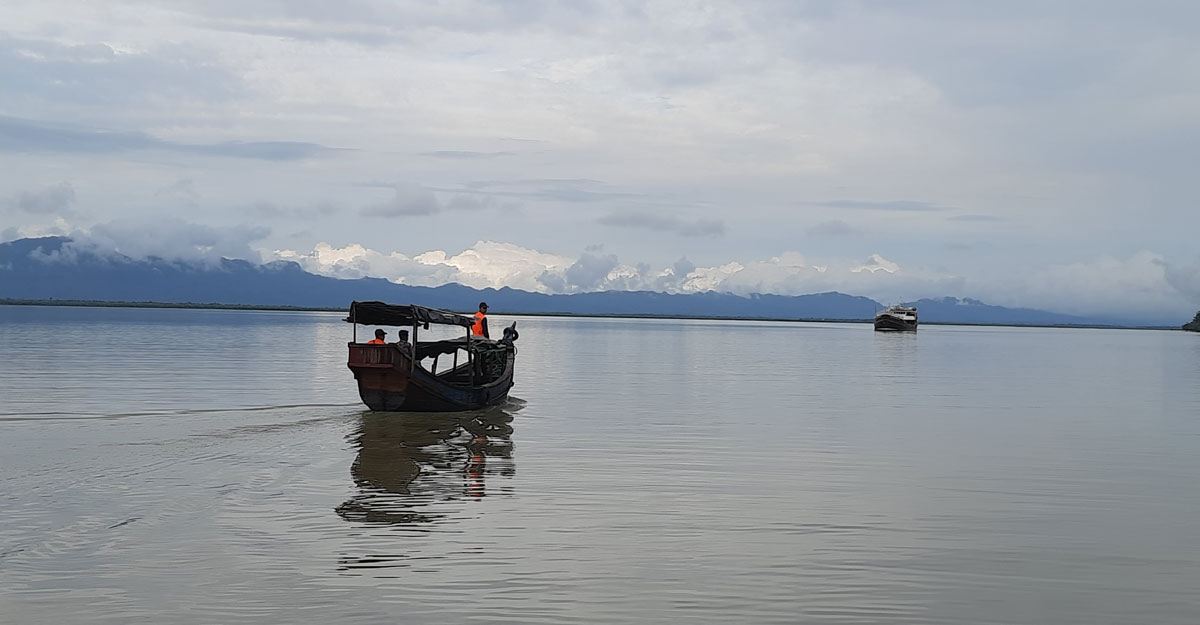
A large number of Rohingya people came to Cox’s Bazar in August 2019. At that time, the Bangladesh government reduced the internet speeds in Rohingya camps around Cox’s Bazar and Teknaf considering the security issue of the country. Myanmar took this as an opportunity to enhance its market in Bangladesh. They use their state-owned company MPT to capture the Bangladeshi market. They have set up at least 12 towers in the border area in the last one and a half years in accordance with their plan while the number of towers in the area was ‘zero’ before 2019.
In addition, the authorities of MPT are selling SIM cards at a very low price and offering attractive minutes and internet package to capture the market of about 11 lakh Rohingyas in different camps. Around one lakh MPT SIMs are already being used in Bangladesh. In the meantime, the MPT SIMs have become one of the means of communication for arms, yaba and other drug smugglers.
MPT are selling SIM cards at a very low price and offering attractive minutes and internet package to capture the market of about 11 lakh Rohingyas in different camps. Around one lakh MPT SIMs are already being used in Bangladesh.
To confirm the veracity of the information, a Dhaka Post correspondent bought a MPT SIM from the Unchiprang Rohingya camp area in Teknaf for Tk 400. The SIM number is 0945439... While contacted, MPT told Dhaka Post that the SIM was registered in November 2020 in the name of Mong Min Wai Chit, a citizen of Myanmar. But the SIM has been bought from Bangladesh by our correspondent.
Thus, a number of registered SIMs are being sent to the Bangladeshi Rohingya camps from Myanmar. However, the Bangladesh Telecommunications Regulatory Commission (BTRC) has no control over MPT frequencies. As a result, drug smugglers are carrying out various illegal activities through MPT.
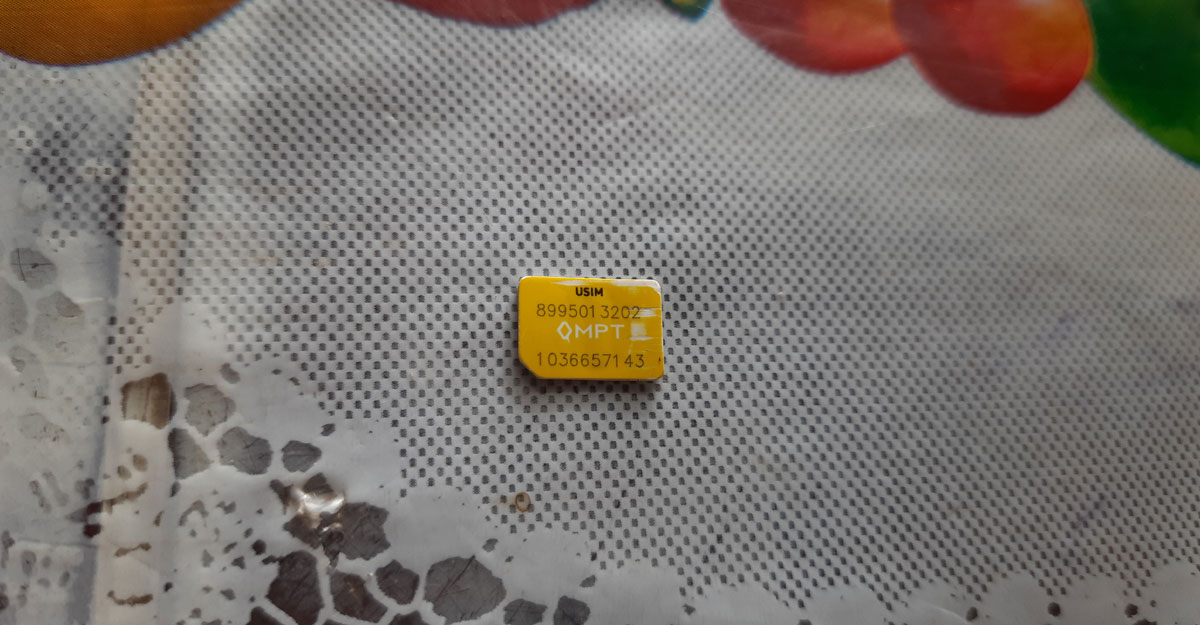
A Rohingya from the Balukhali camp who is reluctant to disclose his name told Dhaka Post that almost everyone in this camp had a mobile phone. SIMs of Bangladeshi mobile operators are sold openly. However, MPT SIMs are being sold secretly in the camp. MPT’s recharge, minute and internet cards are also available at the camp. Most Rohingyas use Robi SIM for communication in Bangladesh and MPT SIM for communication in Myanmar.
Almost everyone in this camp had a mobile phone. SIMs of Bangladeshi mobile operators are sold openly. However, MPT SIMs are being sold secretly in the camp. MPT’s recharge, minute and internet cards are also available at the camp.
A Rohingya from the Balukhali camp, who did not want to be named
How MPT SIMs comes to Bangladesh
According to an investigation, MPT SIMs were brought to Bangladesh through several unprotected borders of Myanmar including the Naf River. Most of those who bring SIMs are Rohingya traders. They could easily bring 200 to 300 SIMs from Myanmar in their pockets or bags. After being brought to Bangladesh, these SIMs are being sold in various Rohingya camps. In this case, special ‘authorization’ is required.
A SIM trader informed Dhaka Post that it costs Tk 40 to 50 for each SIM. After being brought to Bangladesh, it is sold for Tk 250 to 400.
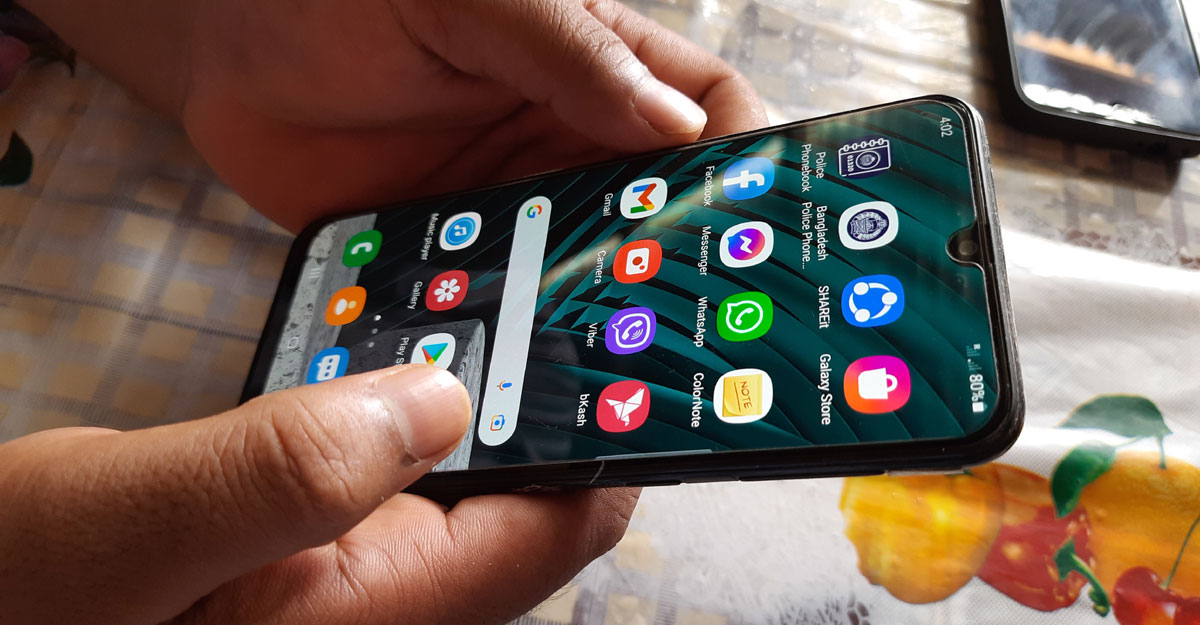
Rafiq, a ‘Majhi’ at the Unchiprang Rohingya camp, said, “These SIMs are being delivered from Balukhali and Kutupalong Rohingya camps in Cox’s Bazar. There is a designated agent in the camp to recharge money to these SIMs.”
Ruhul Amin, general secretary of the Huaikeng Union Chhatra League, told Dhaka Post that the frequency of all Bangladeshi SIM companies, including Robi, has been reduced after the Rohingyas came to Bangladesh. But now Rohingyas are using MPT SIMs and locals are being deprived. MPT SIMs are now very available in Rohingya camps. They use the MPT network to bring yaba and weapons from Myanmar.
He demanded immediate action to stop the use of MPT SIMs by Rohingyas in Bangladeshi camps.
The frequency of all Bangladeshi SIM companies has been reduced after the Rohingyas came to Bangladesh. But now Rohingyas are using MPT SIMs and locals are being deprived.
Ruhul Amin, general secretary of the Huaikeng Union Chhatra League
Yaba dealing through MPT
Yaba is currently entering through Thaingkhali, Rahmater Beel, Palang Khali, Balukhali and Tambru areas of Ukhia upazila in Bangladesh. Each of these illegal transactions has been done by using MPT SIMs. Besides, many Bangladeshi drug dealers are using MPT SIMs.
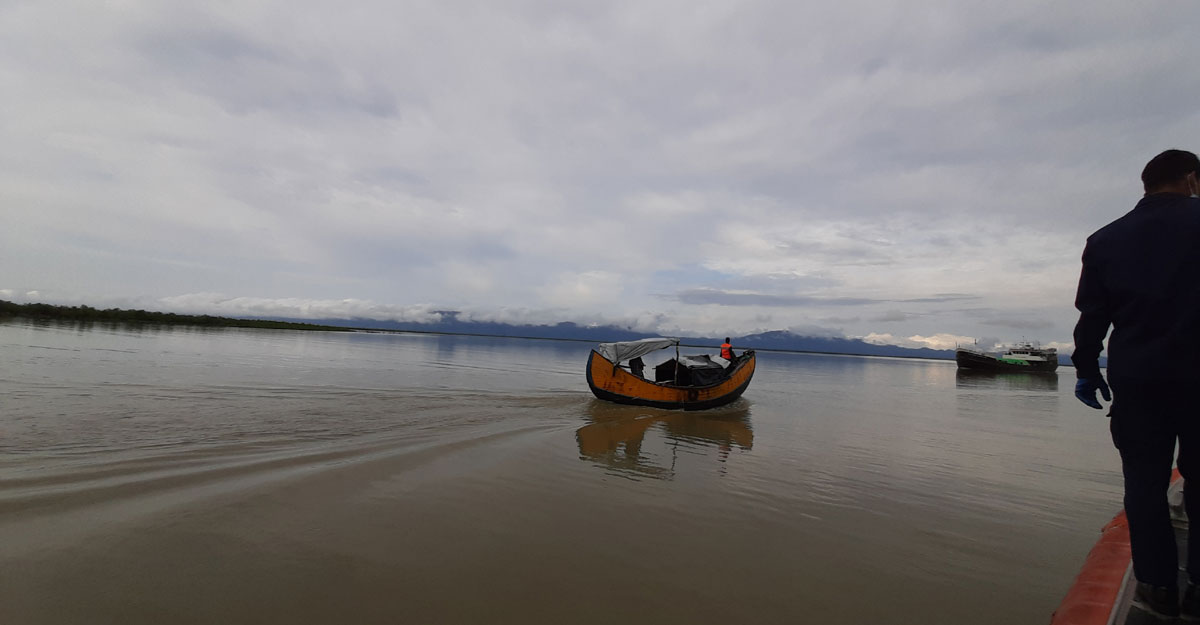
A SIM registrar of a camp in Ukhia, who did not want to be named, told Dhaka Post that Rohingya and Bangladeshi yaba traders use MPT SIMs. Multiple proofs of using MPT SIMs have also been found. Drug dealers first order yaba from Bangladesh through MPT. After receiving the confirmation message from Myanmar, Rohingyas left Bangladesh for Myanmar at midnight and returned with the yaba consignment again the very next night.
Ransom demanded after abduction through MPT SIM
According to the law enforcement agencies, a group of Rohingyas often abduct the locals from Teknaf using various tactics. The cycle communicates with the victim’s family through the MPT SIM after the abduction. Recently, a group of Rohingyas abducted a young man named Jamal from the Nayapara area of Teknaf. They blindfolded Jamal and took him to a secluded hill. There he was beaten and they demanded a ransom of Tk 5 lakh taka from Jamal’s father Haider Ali. At first, they called Haider Ali through a Robi number but for further communication, they asked him to buy MPT SIM from the Lada camp.
Haider Ali said, “I was told to stand in front of a saloon at Lada camp. As soon as I stood there, someone approached me and gave me a SIM card. They called me just 45 minutes after activating the SIM in the area. They regularly communicate with me through using the MPT number.”
He claimed that he informed the police about the abduction and the phone call but the police could not track the number.
In February 2020, a Rohingya robber named Nurul Amin, 43, was killed in a gunfight with the RAB at Hnila Union in Teknaf. RAB recovered 11 MPT SIMs from the robber’s bag. Armed Police Battalion also arrested Rohingya robber Ziaur Rahman with MPT SIMs from H block of Nayapara camp.
They asked me to use MPT SIM. One of them approached me and gave me a SIM card. They called me just 45 minutes after activating the SIM in the area. They regularly communicate with me by using the MPT number. I informed the police about the abduction and the phone call but the police could not track the number.
Haider Ali, whose son has been abducted
More than 50 Rohingya robbers were arrested from various camps in Cox’s Bazar. Nine of them made confessional statements in court that they used MPT SIMs for maintaining communication in Myanmar.
No control over MPT
The Bangladesh Telecommunication Regulatory Commission (BTRC) can trace the calls of public and private mobile operators in Bangladesh. However, the BTRC is not able to control the use of foreign frequencies in Bangladesh. As the Rohingyas manage their own Facebook groups and pages by using MPT frequencies, the regulatory body often cannot stop their provocative messages and propaganda.
The police often take out the CDR (Call Detail Record) of the mobile phone for the investigation of any murder or sabotage case in Bangladesh. However, Police are unable to collect the CDR of the MPT SIMs used in Rohingya camps.
The BTRC is not able to control the use of foreign frequencies in Bangladesh. As the Rohingyas manage their own Facebook groups and pages by using MPT frequencies, the regulatory body often cannot stop their provocative messages and propaganda.
A police official in Cox’s Bazar who is reluctant to disclose his name told Dhaka Post that they had released a CDR of the Bangladeshi mobile numbers of some Rohingyas accused and suspected of murdering a Bangladeshi. However, the CDR of the main accused revealed that only nine calls were made by him in the last seven days, which seems abnormal to us. After arresting the accused, he informed the police that he had planned the murder by using MPT SIM.
Myanmar aware of using MPT SIMs by Rohingyas
A local journalist from Cox’s Bazar notified Dhaka Post that the use of MPT SIMs in Cox’s Bazar is now an open secret. In addition, Myanmar received the information of any sabotage or accident in these camps through this SIM.
A journalist from Myanmar said that we often get news that there are many Myanmar spies with Rohingyas in the camps of Bangladesh. They used MPT SIMs in the camps to deliver the information of Bangladesh to Myanmar.
There are Myanmar spies with Rohingyas in the camps of Bangladesh. They used MPT SIMs in the camps to deliver the information of Bangladesh to Myanmar.
A journalist from Myanmar
‘Nothing can be done despite knowing everything’
When contacted, Mustafa Jabbar, Minister of Post and Telecommunication, told Dhaka Post, “We along with the law enforcement agencies are aware of it. But it is almost impossible for us to control or block the frequency or network of another country.”
The minister, however, suggested our correspondents to contact BTRC in this regard for further details.
We along with the law enforcement agencies are aware of it. But it is almost impossible for us to control or block the frequency or network of another country.
Mustafa Jabbar, Post and Telecommunication Minister
Protest to be sent to Myanmar: BTRC
BTRC Commissioner (Spectrum) Engineer AKM Shahiduzzaman told Dhaka Post that there is no legitimacy to use the network of one country to another country as it is a cross-border issue. They (Myanmar) cannot use their frequency in our country. We will send a protest to Myanmar regarding the issue through the Ministry of Foreign Affairs.
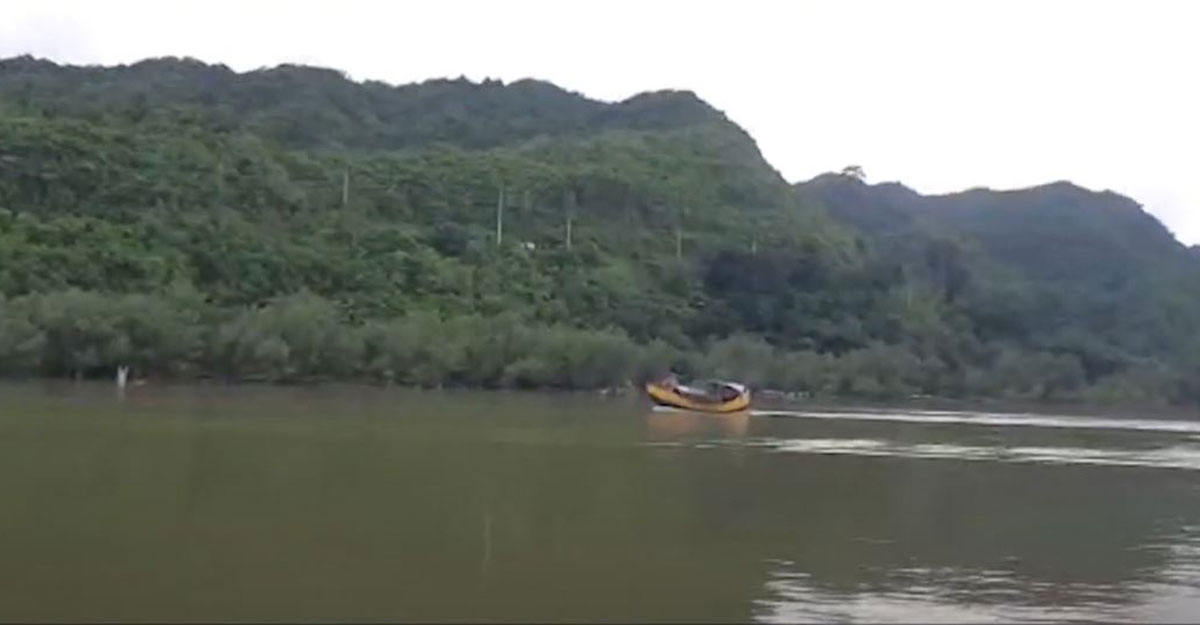
We will also look into whether the security forces in our respective border areas have made any report on the matter or whether they are aware of it, he added.
MPT’s statement
Migla Par, the MPT spokesperson, was contacted from Bangladesh on sending fake registration SIM to Bangladesh. He told Dhaka Post that if any customer wants, he can change his national identity card number, passport number and nationality information by dialing *601#
Rohingyas using Robi-Banglalink SIMs
Our correspondents spoke to nine Rohingyas in Cox’s Bazar and Teknaf. Seven of them use MPT as well as Robi SIMs while two others are using Banglalink SIMs. The SIMs of these two Bangladeshi companies are very popular among the Rohingyas because of their strong network in the area.
Visiting the border areas of Myanmar, including Unchiprang in Teknaf, one can see Robi towers every two kilometers and Banglalink towers every three to four kilometers. Although mobile operators have built towers to bring service to Bangladeshis in the border areas, Rohingyas are currently the biggest consumers of it.
Speaking to Bangladeshis living in the vicinity of the Kutupalong and Balukhali Rohingya camps, it is learned that the government converted the area network to 2G soon after the arrival of Rohingyas in August 2019. As a result, it was not easy to contact in the camp. However, Robi and Banglalink launched 4G service again in the area in January 2021.
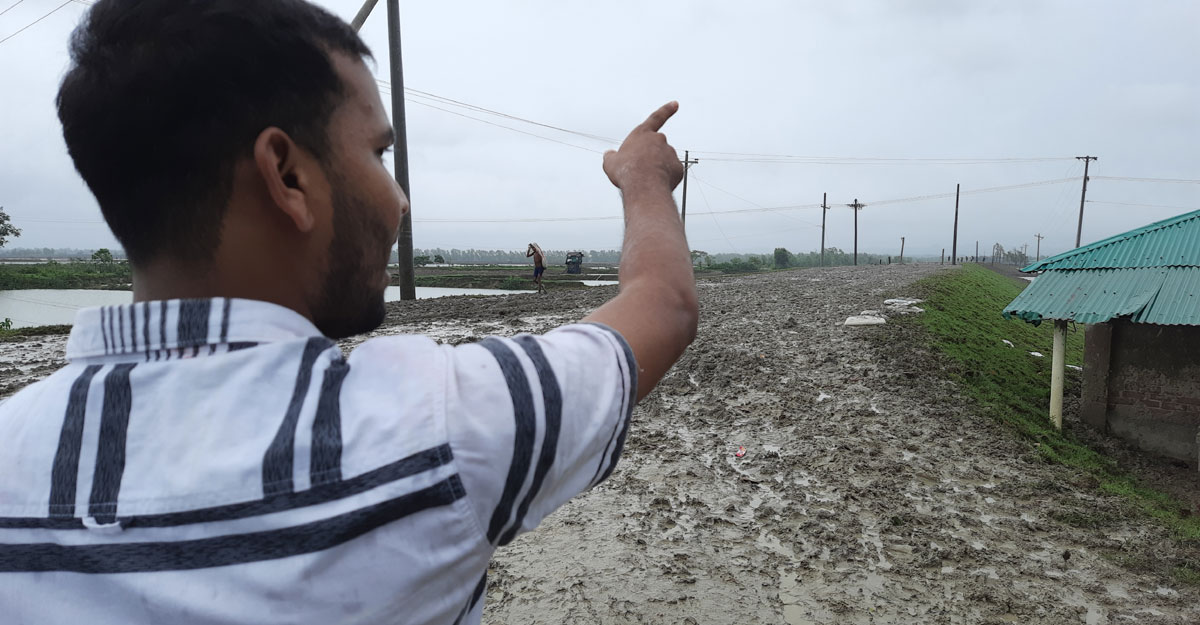
According to the locals, when the outbreak of coronavirus started across the country in 2020, all the educational institutions went online teaching methods. Students in the Cox’s Bazar-Teknaf area could not participate in online classes due to the poor internet connection. Therefore, at the beginning of 2021, Robi and Banglalink increased the speed of the internet again.
Not only that, as there are towers in different areas of Teknaf and Ukhia, Robi and Banglalink SIMs can be used in an area of 10 km inside Myanmar. A Bangladeshi yaba trader, who did not want to be named, told Dhaka Post that most of the traders who go to Myanmar for various reasons use MPT as well as Robi SIM. I found Robi’s network in the Perang Pool and Kawarbil areas of the border with Myanmar. Besides, transactions can also be done through ‘Bkash’ from there.
How Rohingyas use Bangladeshi SIM without NID
A Dhaka Post reporter was able to buy a Robi SIM for Tk 300 from the Kutupalong Rohingya camp without having any NID card. Dhaka Post revealed the name and address of the registered person of that SIM by using its own source. It is learned that the SIM was registered in the name of Dibya Kanti Basak from Brahmanbaria.
Dhaka Post communicates with Dibya Kanti Basak and he expressed surprise when he was informed about the SIM registration by using his name in the Rohingya camp. He said, “I am currently using a Grameenphone number. I worked for an NGO in the Rohingya camp in Cox’s Bazar for two and a half years. At that time, the SIM may have been bought with my NID number or its photocopy.”
Bangladeshis now have to face many hurdles in various important tasks including passport, birth registration and NID. Applying for a passport takes four to five months to verify.
Locals, the ultimate sufferer
Locals in Cox’s Bazar and Teknaf areas said that they are currently suffering due to their positions near the Rohingya camps. They now have to face many hurdles in various important tasks including passport, birth registration and NID. Due to Rohingyas, real Bangladeshis are being screened a lot. Applying for a passport takes four to five months to verify. They demanded that the suffering of Bangladeshis have to be reduced by keeping the Rohingyas under strict surveillance.





